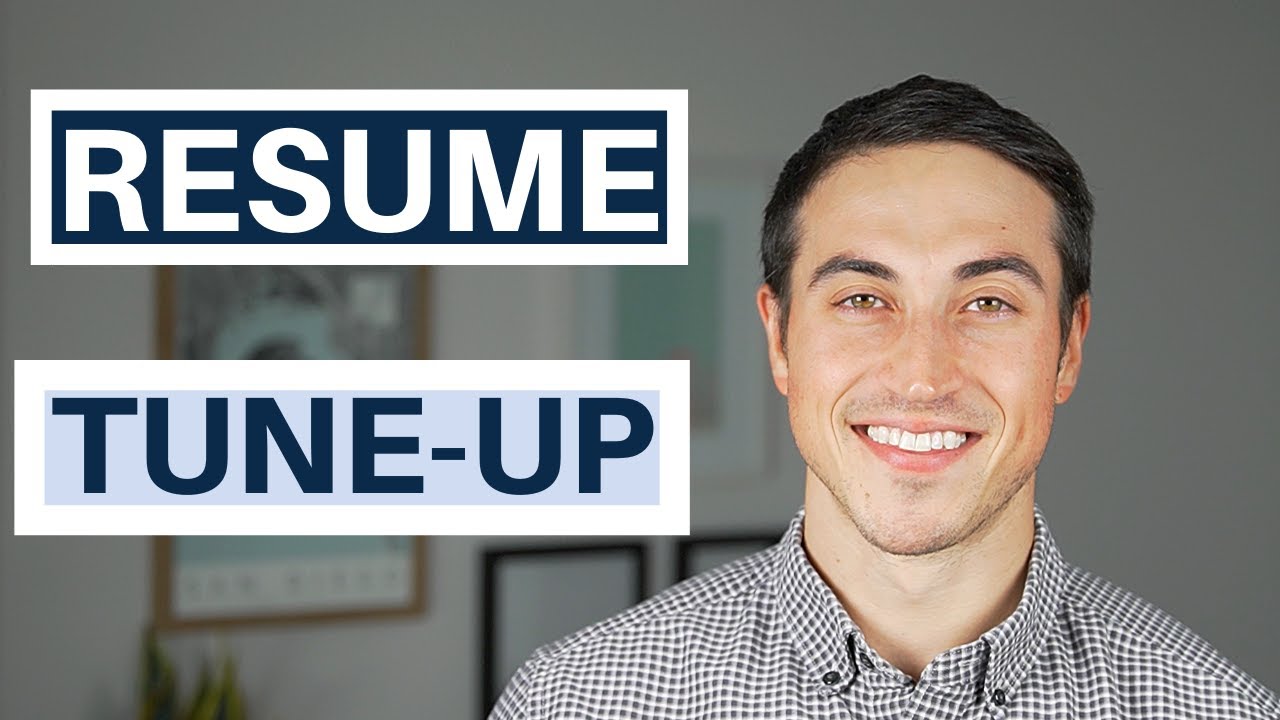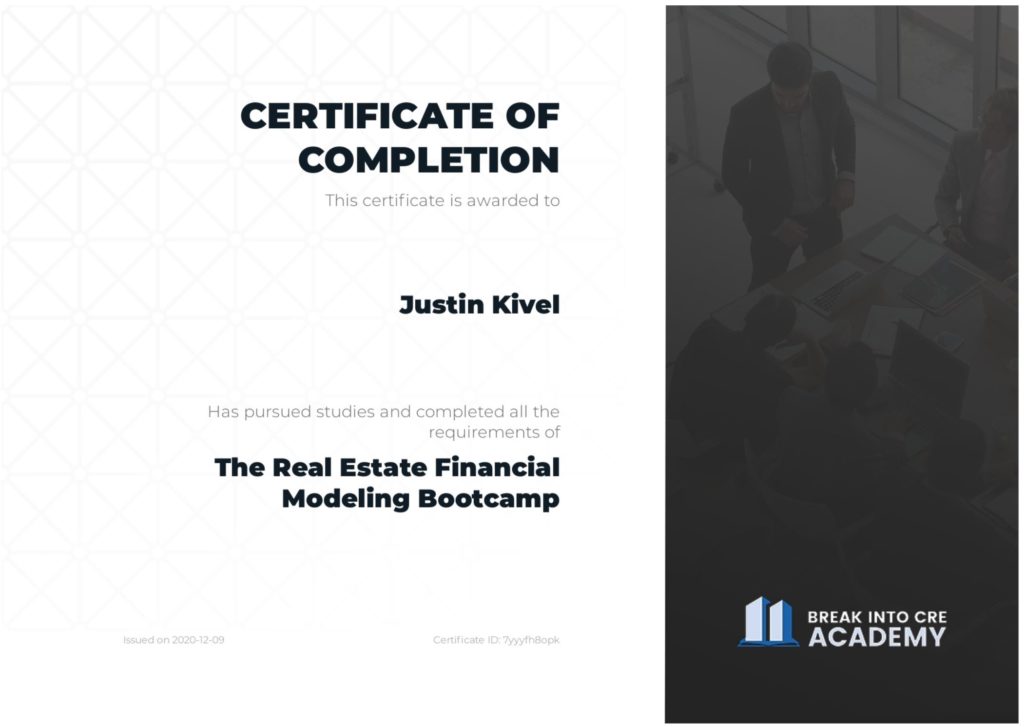
4 Things To Add To Your Commercial Real Estate Resume (Every Year)

The end of the year is a great time to step back, reflect, and prepare for the new year.
From a career perspective, this is one of the most valuable things you can do to advance in any industry, commercial real estate included.
And on that note, since you searched for this article, I’m guessing you have big goals for the new year. With that, I would also guess that many of these goals are job-related. And since you’re on a website called “Break Into CRE”, I’d venture to guess that one or more of those job-related goals are also around how you’ll land your first or next role in the real estate industry.
If you’re reading this any time after October 1st, now is the time to start dusting off the old resume, and to start incorporating the things you’ve done and the skills you’ve learned over the past 12 months that make you the professional you are today.
And to help with this process, in this article, we’ll run through my year-end resume “tune-up” process, that you can use to incorporate everything you’ve done this year into your resume, to make yourself the most attractive candidate for the roles you’re shooting for in 2021.
If video is more your thing, you can watch the video version here:
A lot can change in 12 months, including your career experiences, your real estate related skill sets, and your professional goals as a whole.
And even though so many things have likely changed for you since January, chances are you’ve been busy with work, school, or both. And if you’re like most people with so much going on day-to-day, those changes probably haven’t quite made it onto your resume yet.
But as things slow down as we head into the holidays, now is a great time to step back, reflect, and think about what you’ve done over the last year. From there, you can then package those experiences and skill sets into clear, concise points on your resume that will directly help you stand out and land the role you’re looking for in the new year.
And to help guide you through that process, let’s walk through four resume “tune-up” points that you should be focusing on at the end of each year as a real estate professional, and what you might want to add in your own resume for each.
Add Technical Real Estate Financial Modeling and Analysis Skill Sets (& Prove It)
First on this list, and probably most importantly if you’re still in school right now, is to make sure to add any technical skill sets you’ve built over the past year, and proof of your abilities in those areas, if possible.
This would include adding things like Excel or ARGUS certifications you’ve received over the last year, a new real estate license, or any coursework you’ve successfully completed that’s directly related to the roles you’re targeting.
Most analyst and associate roles in the real estate industry are going to be looking for someone with a strong technical foundation, so coursework like the real estate financial modeling classes included in Break Into CRE Academy on acquisition and development pro forma modeling, equity waterfall modeling, and modeling commercial real estate leases would all be great additions to a resume.

Relevant college coursework you’ve taken during the year like a negotiations course, real estate finance courses, or anything else related to the roles you’re applying for would also be appropriate for these additions, as well.
What you’re really looking for here are the things you’ve done over the year that would make an employer believe you would require minimal training and “hand-holding” on basic tasks, you could bring a unique skill set to the table, and you would be able to produce accurate, quality work as soon as you were hired.
Add Measurable Results You’ve Achieved
Now once you’ve added any new skills, certifications, or coursework, the next thing I’d recommend as part of your end of year resume tune-up is making sure to add any measurable results you’ve achieved throughout the year.
If you’re working in the real estate industry right now, this is the time to look back on the past 12 months and write down any quantifiable successes that you’ve had, and the details of those successes, as well.
This can include things like any closed acquisitions you worked on during the year, any development, renovation or repositioning projects you completed, or any deals you managed which were sold (and the return metrics associated with those deals, if possible).
And if you’re in school, this is the time to look back throughout the year and add any significant real estate-related projects you worked on, any case study competitions you competed in, or even any real estate-specific research articles you authored throughout the year.

As with any industry, real estate employers are looking for people who have a proven track record of success.
And even if that track record isn’t directly related to the real estate space just yet, the more you can show you’ve achieved measurable results in the past (regardless of the industry), the more your resume is going to stand out from the pack when compared to your competition.
Use Your Resume Summary To Reflect The Real Estate Professional You’ve Become
Once you’ve added your successes throughout the year and your new skill sets, the next thing I’d recommend is to update your Summary section on your resume, specifically to reflect who you are currently as a real estate professional, and where you want to go in the future.
This means that if you’ve improved your Excel skill set during the year significantly and you feel confident in your modeling abilities, this is the time to add language referring to that in your Summary headline that recruiters and hiring managers will see first when they start scanning your application for a role.
Even adding something as simple as “Real Estate professional with strong analytical skill set in ARGUS and Excel” would be appropriate here, and would immediately start your resume off with two keywords real estate employers are looking for most in analyst and associate candidates right now.
And aside from just talking through who you are as a professional today, this is also a great time to re-evaluate where you want to go next in the industry, and to modify your Summary section on your resume to reflect that.

This means that if you know you’re shooting for an acquisitions role in the multifamily sector next, now is the time to start adjusting your Summary section to show how you have both the skill sets and experience necessary to add value in a multifamily acquisitions analyst or associate role, and to show your commitment to the multifamily sector of the industry long-term.
And if you want to work in asset management on industrial deals, this is the time to adjust your Summary section to show your experience in and knowledge of asset management and the industrial product type, specifically, and to clearly and concisely demonstrate how you can step into a role like this and add value from day one.
The goal here is to present yourself as that “perfect fit” that a company would be looking for when they create the job description in the first place. And you can do this simply by giving a quick, 1-2 sentence synopsis of how you would summarize yourself as a real estate professional today, and where you’re looking to take your career in the future.
Track Your Real Estate Transaction Volume
Finally, once you’ve added your new skills, the measurable results you’ve achieved, and updated your Summary section accordingly, the last thing I’d recommend here is to track the total transaction volume you’ve worked on throughout the entire year.
If you take a look at the bios of any top executive or entrepreneur in the real estate space, you’ll find one thing in common among almost all of them:
They include the total deal volume that person has worked on, and/or the amount of capital or real estate they’ve managed throughout their career.
It might seem like everything you’ve done up to this point is easy to remember right now if you’re only a few years out of school, but once the years start passing by and you’ve been in the industry for a while, things are going to start getting a little fuzzy.
And even if you don’t decide to add this to your resume immediately, you’ll want to have the data there for you when you do need or want it, whenever that may be.
If you worked in acquisitions or brokerage this year, this means logging each individual closed transaction you worked on, the location of each deal, the product type of each transaction, the square footage or number of multifamily units on each deal, and the total monetary value of each property, as well.
And if you worked in asset management this year, you may want to track key operating metrics like the square footage or number of multifamily units you managed, the percentage increase in NOI you facilitated throughout the year on each property, the property’s performance compared to budgeted figures, or the number of new commercial leases you negotiated and signed (and the tenants you negotiated those leases with).

Excel is a great way to track your progress over the years, but if you’re worried about losing the file or having it buried somewhere in your computer never to be found again, using something like Google Sheets is a great way to keep this all in one place, easily accessible, and ready to be updated each year as time goes by.
Check In With Your Real Estate Mentors
All of these things are helpful on their own in updating your resume and preparing for applications heading into the new year. With that said, if you want to take things a step further, an extra pro tip here to wrap up your end-of-year resume tune-up is to use the holidays coming up as a reason to check in with some of your mentors and more successful contacts in the industry, and take this opportunity to refresh your relationships in the process.
Especially if you’re still in school, now is a great time to fire off a few emails to some of your trusted advisors in the industry wishing them well heading into the new year, giving them an update on what you’ve been working on, and sharing with them where you’re looking to go next from a career perspective.

Depending on your relationship with each person, you may even ask them if they’d be willing to take a quick look at your updated resume, because you value their opinion and their industry expertise.
This not only gets an extra set of eyes on your resume, but it also gets your resume in the hands of experienced, connected real estate professionals, who will now have you as “top of mind” for when opportunities arise, either at their firm or at one of their peer’s.
And now is the time that you really want to be top of mind for opportunities that might come up, as January tends to be a time when companies start to ramp up hiring in the new year, and these people will likely know of opportunities before they’re even posted on job boards online.
How To Build Real Estate Financial Modeling Skills To Add To Your Resume
If you’re trying to break into the industry or land a new real estate role in the new year, and you know you need to fill in some gaps in your technical skill sets before hiring season starts to ramp up, Break Into CRE Academy is definitely a resource I’d recommend checking out.
The program will give you instant access to all Break Into CRE courses on real estate financial modeling and analysis, dozens of Excel training files and practice Excel real estate financial modeling interview exams, resume templates and networking trackers, and even one-on-one email-based career coaching to help you land the role you’re looking to land next year.
Good luck with your resume tune-up!


